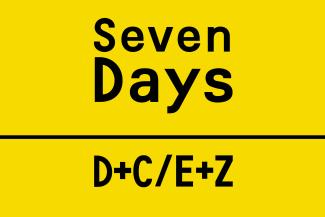In brief
News of the week

G7 promise climate action
At their summit in Bavaria, the G7 have committed to phasing out the use of fossil-fuel emissions by the turn of the century. The leaders of the USA, Canada, Germany, France, Britain, Italy and Japan said they would reduce greenhouse-gas emissions by 40 % to 70 % from 2010 to 2050, and German chancellor Angela Merkel pointed out that a figure near the upper end was needed. Moreover, the G7 reaffirmed that their countries will make available an annual $ 100 billion of private and public funding to boost climate adaptation and mitigation in developing countries. According to environmentalist groups, the summit declaration is more far-reaching than expected.
The G7 also discussed developmental issues such as health, food security and international supply chains. Gerd Müller, Germany’s minister for economic development and cooperation, appreciated the progress made. A spokesperson for Oxfam Germany, however, bemoaned that the G7 declaration remained “non-committal” in regard to these matters.
At a meeting hosted by the secretariat of the UNFCCC (UN Framework Convention on Climate Change), delegations made progress on preparing the draft agreement for the climate summit in Paris in December. The biggest step forward is consensus on how to deal with forest issues. Other questions remained unresolved. Laurence Tubiana, who represented France in Bonn, said the meeting helped to build confidence, and the preparations for Paris were on schedule.
Sources: BMZ, Oxfam, taz
World Bank expects sluggish growth in developing countries and emerging markets
Kaushik Basu, the World Bank’s chief economist, believes 2015 will prove tougher for developing countries than expected so far. Challenges include lower commodity prices which imply lower export revenues as well as higher borrowing costs should the US central bank raise interest rates this year as most observers expect it to do. Whereas emerging markets and developing countries were the growth engines of the global economy in the past years, the World Bank reckons the advanced economies will take over now.
According to the Bank’s new Global Economic Prospects report, high-income countries are on course to grow by two percent this year, while the global economy should expand by 2.8 %.
Link:
http://www.worldbank.org/en/publication/global-economic-prospects
New free trade area to cover half of Africa
Africa is to set up a huge free-trade zone covering 26 countries from Egypt to South Africa. The agreement called Tripartite Free Trade Area (TFTA) was signed on Wednesday at the Common Market for Eastern and Southern Africa (COMESA) summit in Sharm el-Sheikh, Egypt. It will be officially unveiled at the AU summit this weekend in South Africa. TFTA is designed to merge three existing regional economic blocks: the Southern African Development Community (SADC), the East African Community (EAC) and COMESA.
The member countries of the TFTA represent more than half of Africa’s GDP. 625 million people live in the area. By creating a common market, removing trade barriers and easing the movement of goods, the African countries want to boost intra-African trade.
Sources: BBC, AFP
Burundi’s government announce new dates for elections
According to Burundi’s government, the new parliament will be elected on 29 June and the next president will be elected on 15 July. The parliamentary elections had already been postponed twice. The country has been rocked by a broad-based protest movement that does not want President Pierre Nkurunziza to run for a third term as head of state. The constitution only allows two terms.
Germany’s Federal Ministry for Economic Cooperation and Development has suspended its cooperation with Burundi in view of Nkurunziza’s unconstitutional behaviour. He will not attend the AU summit this weekend because he does not want to leave the country. When he went to a summit of the East African Community (EAC) last month, generals staged a coup against him, but failed to topple him.
Sources: Jeune Afrique, BMZ
UN report accuses Eritrea of human-rights abuses
The government of Eritrea is responsible for systematic, widespread and gross human-rights violations, according to a report by the UN Commission of Inquiry on Human Rights. The document describes a totalitarian state bent on controlling Eritreans through a vast security apparatus that has penetrated all levels of society. The regime has created a climate of fear which stifles dissent. Moreover, a large proportion of the population is subjected to forced labour and imprisonment. Hundreds of thousands of refugees have fled the country.
The UN report even speaks of crimes against humanity. Human-rights violations are said to be of scope and scale seldom witnessed elsewhere. President Isaias Afwerki, in power for 23 years, and his government have not cooperated with the report authors, ignoring repeated requests for direct access to the country as well as for information. The commission travelled to eight other countries and carried out some 550 confidential interviews with Eritrean refugees. In addition, it relied on some 160 written submissions. Eritrea’s Foreign Ministry dismissed the UN findings as “indecent hyperbole”, but did not address specific allegations. The report demands that Eritrean refugees be protected internationally and warns that people who are sent back to Eritrea are likely to be punished by the authorities there.
According to the UN Refugee Agency UNHCR, some 360,000 Eritreans are currently living outside their country. The international community, particularly governments in Europe, North Africa and the Middle East, are struggling to cope with a growing exodus of refugees from many countries.
Link:
http://www.ohchr.org/EN/HRBodies/HRC/CoIEritrea/Pages/ReportCoIEritrea.aspx
Amnesty report about war crimes shocks Nigeria’s military
A report by Amnesty International alleging “horrific war crimes” by the Nigerian armed forces has sent shock waves through the country’s military hierarchy. Some military officials fear to be accused by the International Criminal Court in The Hague, the Nigerian newspaper Guardian reported on Monday, and many were anxious about how the new government of President Muhammadu Buhari will handle the matter.
Defence spokesman Chris Olukolade condemned the report “Stars on their shoulders. Blood on their hands: War crimes committed by the Nigerian military” as biased and unfair and denied the allegations. “For the avoidance of doubt, the Nigerian military does not encourage or condone abuse of human rights, neither will any proven case be left unpunished,” he stated.
Amnesty International reports that soldiers and military commanders committed war crimes like murder, torture and forced disappearances in their fight against the Islamist group Boko Haram in the north-east of the country. According to the international NGO, more than 7,000 men and boys have died in military detention since March 2011, and more than 1,200 people were unlawfully killed since February 2012.
AI discloses the names of nine high ranking officials allegedly involved in war crimes and possible crimes against humanity. Furthermore, it calls for Nigeria to ensure “prompt, independent and effective” investigations and to end “the pervasive culture of impunity within the armed forces”. The organisation said its report was based on years of research and analysis of evidence, including leaked military reports and correspondence, as well as interviews with more than 400 victims, eyewitnesses and senior members of the Nigerian security forces.
Sources: Guardian (Nigeria), Amnesty International
Basic agreement for new constitution in Nepal
Nepal’s four leading political parties have agreed on the basics of a new constitution for their post-conflict country which recently suffered a devastating earth quake. The country will have a federal system with eight provinces. Moreover, there will be a mixed electoral system. Sixty percent of legislators will represent constituencies that will choose them according to the first-past-the-post principle, while the other 40 % will represent party lists according to vote shares.
The country’s civil war ended in 2006, and debates on the new constitution have been dragging on since. Observers say the earthquake put the political leaders under pressure to finally agree on a way forward. One of the major parties of today is the former Maoist militia that was in control of large parts of Nepal when the war ended.
Sources: The Hindu, ORF
These items were compiled by Sabine Balk, Hans Dembowski and Katja Dombrowski on the basis of international media coverage.











